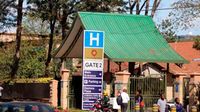Nairobi Hospital has more than tripled its investments in government paper to Sh1.19 billion after purchasing an infrastructure bond as it slid into loss-making following a drop in patient numbers.
The hospital disclosed in the latest annual report covering the financial year ended December 2022 that it increased its investments in Treasury bonds from Sh355.4 million to Sh1.19 billion, a 3.4 times rise.
The hospital has joined a growing list of corporates lining up to take advantage of the current high returns in lending to the government in a divesture plan.
Read: Nairobi Hospital recovers Sh1 billion from insurers
The increase came in the period the hospital purchased a Sh856.2 million infrastructure bond. This is compared with Sh360.3 million Treasury bonds that had been added in the previous year.
“The government infrastructure bonds are for an expected tenure of 20 years at an interest rate of 13.44 percent,” says the hospital.
The hospital cut its investment in fixed income from Sh1.94 billion to Sh1.39 billion as the effective interest rate fell from 8.85 percent to 8.78 percent in an environment where rates on government paper were rising.
Nairobi Hospital returned a deficit of Sh564.7 million in the financial year under review, down from a surplus of Sh320.3 million a year earlier.
The hospital attributes this to a fall in patient numbers, especially at its United Nations wing where bed occupancy dropped from 33 percent to three percent.
The wing had been exclusively assigned for Covid-19 patients and the substantial downturn in new infections has meant a big drop in the number of Covid-19 patients requiring medical care and hospitalisation.
“The hospital is currently engaged in the process of repurposing the facility,” says the hospital which previously hinted at converting the 135-bed facility into a research centre.
The business recorded a seven percent decrease in revenue to Sh11 billion from Sh11.8 billion the previous year, with the general bed occupancy dropping from 54 percent to 46 percent.
Read: Regulator probes Nairobi Hospital over don’s body
Revenue streams
It was also impacted by the weakening of the shilling against the dollar, which it says increased the costs of sourcing surgical inputs and drugs and also led to a surge in heavy equipment maintenance costs.
The hospital has been diversifying its revenue streams into areas such as laundry and fitness. Its laundry business earned it Sh16 million while the health and fitness centre gave it Sh1.83 million. BY BUSINESS DAILY



